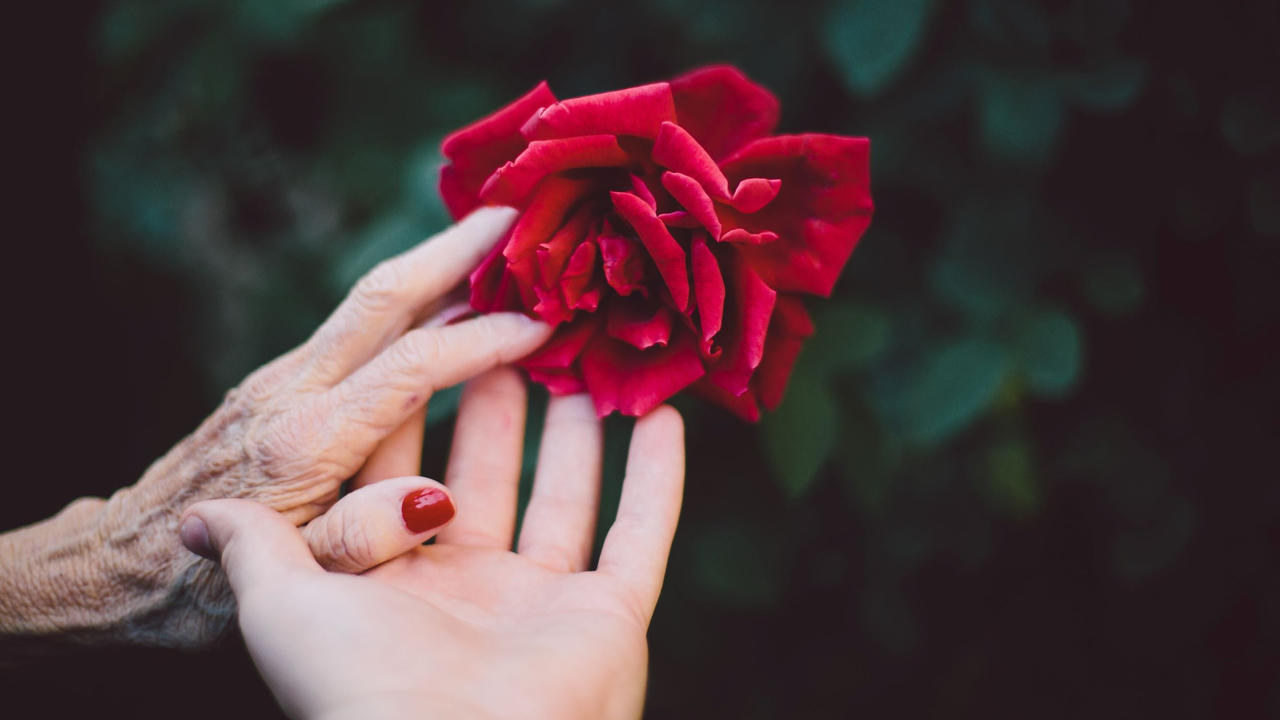Let's care for the caregivers

As modern women, we take planning our lives very seriously. We schedule appointments into our favourite daytimers (probably one of several), we write lists, and we shape our careers by carefully planning for all the different stages. We also plan for the transitions in the lives of our children and the subsequent changes in our homes. But one thing many of us fail to plan for is the eventual responsibilities of caregiving for someone we love who is ill or at end-of-life.
For some reason, having responsibilities for the care of parents never really factored into my own plans; it seemed like some esoteric idea that was seemingly years down the road. When my mother died, everything in my careful planning was turned on its ear.
I don’t think that in our grief, my sister and I could have ever imagined the toll that becoming the sole emotional support for my heartbroken, aging father would take. Before my mother’s death, my father was the pillar of the family - he always seemed utterly invincible. I remember my mother saying, “…your father is the head of the house, but I am the neck that turns the head”. We realized just how true this was once she was gone.
The two of us spent almost ten years filling the role my mother had left vacant. The last year of his life required the most exhausting care (most of which was shouldered by my sister). Both of us felt lucky to have been able to help him at the end of his life, but we were juggling his needs while also raising our kids and carrying on careers.
How big is the informal caregiving issue?
Were my sister and I unique? Statistics would suggest not. The almost 5 million women who are between the ages of 50-69 provide most of the informal caregiving in Canada (much of which involves physical work such as personal care, housekeeping, and assistance with medical services). Three-quarters of female caregivers in this age group are also still in the workforce. If all this care was actually paid work, it would add up to over 24 billion dollars in wages annually. I would suspect that these numbers are similar (if not higher) in much of the rest of the world. With an acceleration of the aging population worldwide, this trend can only continue to grow.
Caregivers that experience high levels of stress are at higher risk for problems in their relationships, deal with more issues in their physical or mental health (including a much higher risk of depression), and have an overall increased risk of death.[1] Many caregivers ignore their own needs to meet the demands of their role. This includes dropping self-care activities like eating well, getting enough sleep, and exercising. For many, there can also be a significant financial strain in having the responsibilities for medical, transportation, and equipment costs necessary to carry out care.
What help is available?
Very little formal support exists for informal female caregivers, even though it takes a significant physical and emotional toll. Thankfully, here in Canada caregivers can now access up to 26 weeks of compassionate care benefits to be involved in end-of-life care. These benefits are available even if the person you are caring for is not related to you but is “like family”.
Other than financial support, what other resources are available to women who find themselves in the role of caregiver? Here are some things that might help you along your caregiving journey.
- Don’t stop taking care of yourself. And, if you didn’t make your own health a priority in the past, now it’s time to start. This is equivalent to the idea of putting on your own oxygen mask before helping someone else. It’s not selfish. It’s self-preservation.
- Take offers of help. If someone proposes to help you, be specific in what you need. If making you extra meals or driving you to an appointment would really help, let them know that’s what you need.
- Look for a caregiver’s support group in your area. Having a supportive group of people going through the same issues as you not only normalizes your experience, it also can be a source of helpful information and resources.
- Look into respite care. Almost no one wants to be cared for by a stranger. However, if you’re alone in caregiving, sometimes hiring someone who can help lighten your load is necessary (see point 1.).
- Take advantage of online resources. There are some great websites that act as portals for caregiving information. Sites like the Caregiver Action Network provide a great selection of helpful resources and ideas for informal caregivers, including for those caring for a loved one with dementia and other chronic and rare diseases. If you’re in Canada, you can also dial 211 on your phone to get help with resources 24 hours a day, 7 days a week.
Informal caregivers don’t get the recognition they deserve. To all you Age Sisters out there caring for a loved one, we see you and support you. Hang in there!
Your sister in health,

[1] National Academies of Science Engineering and Medicine. Families caring for an aging America. Washington (D.C.): National Academies Press; 2016.
Learn how to love your Midlife
I have a limited number of spaces for new coaching clients. Get personalized support to manage weight, build strength, and improve your confidence to help you live your very best midlife.
We hate SPAM. We will never sell your information, for any reason.


